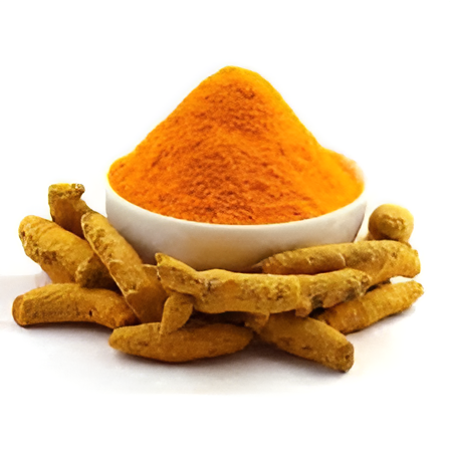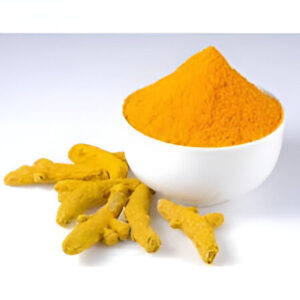
Curcuma longa, better known as turmeric, is among the most prized spices globally. Turmeric, recognized for its bright yellow hue and warm, bitter taste, has been a fundamental ingredient in Indian cooking and Ayurvedic practices for hundreds of years. In the past few years, contemporary science has validated the longstanding wisdom of traditional Indian medicine regarding turmeric’s remarkable health benefits. Curcumin, the active compound in turmeric, is a potent antioxidant and anti-inflammatory agent. This is where the spice derives its healing properties from.
This article will examine the ten most significant health benefits of turmeric that have scientific support and will also discuss simple ways to add it to your daily routine for better overall health and well-being.

1. Turmeric Has Powerful Anti-Inflammatory Properties
Chronic inflammation is thought to be a major contributor to various diseases, including cancer, heart disease, metabolic syndrome, Alzheimer’s, and several degenerative conditions. Curcumin, the primary active component in turmeric, is a natural anti-inflammatory agent that can rival the effectiveness of certain anti-inflammatory medications—without causing adverse effects. Incorporating turmeric into one’s diet regularly may assist in controlling bodily inflammation, alleviating pain, and aiding recovery from injuries or illnesses. This is especially advantageous for those with arthritis or other chronic inflammatory conditions.
2. Boosts Immune System Function
Turmeric, abundant in antioxidants, exhibits antibacterial, antiviral, and antifungal properties that aid in safeguarding your body against harmful pathogens. Curcumin boosts the immune system by modulating immune responses, thereby increasing your body’s resistance to infections.
In Indian households, it is common to drink turmeric milk (golden milk) or turmeric tea during flu season as a natural remedy to prevent colds and fevers. The spice contributes to quicker wound healing and enhances resistance to everyday ailments.
3. Improves Digestive Health
Turmeric supports digestion by enhancing bile production in the liver and boosting the overall effectiveness of the digestive system. It assists in alleviating bloating, gas, and indigestion. Turmeric is used in Ayurvedic and Chinese medicine to address a range of gastrointestinal problems, such as inflammatory bowel disease and irritable bowel syndrome (IBS).
Including a small amount of turmeric in your dishes or consuming turmeric water each morning can aid in the regulation of your digestive system and enhance gut health over time.
4. Supports Joint and Bone Health
Turmeric is particularly advantageous for individuals experiencing joint pain, arthritis, or stiffness in the joints due to aging. Curcumin’s anti-inflammatory properties contribute to alleviating joint swelling, pain, and stiffness.
Research indicates that curcumin may be as effective as certain anti-inflammatory medications for treating arthritis, but without the adverse side effects. Incorporating turmeric into your daily diet or taking it in supplement form may aid in maintaining overall bone health and joint mobility.
5. Enhances Brain Function and Memory
Curcumin elevates the levels of Brain-Derived Neurotrophic Factor (BDNF), a growth hormone that operates within the brain. Brain disorders, including Alzheimer’s and depression, are associated with low levels of BDNF. Turmeric may help delay or even reverse age-related brain decline and enhance cognitive function by boosting BDNF levels.
Certain studies indicate that curcumin could improve memory and concentration, making turmeric advantageous for students, professionals, and older adults.
6. Promotes Heart Health
Cardiovascular disease is among the top causes of mortality globally. Curcumin promotes heart health by enhancing the performance of the endothelium (the layer lining blood vessels). Heart disease is significantly influenced by poor endothelial function. Turmeric aids in diminishing oxidative stress and inflammation, two factors that significantly influence heart health.
Turmeric is a heart-friendly spice, as its regular consumption can help regulate blood pressure, lower cholesterol levels, and enhance circulation.
7. Acts as a Natural Antioxidant
Turmeric contains a high concentration of antioxidants that safeguard your body from harm inflicted by free radicals. Free radicals, which are unstable molecules, play a role in the aging process and the development of various chronic diseases. Curcumin counteracts these detrimental substances and promotes the activity of your body’s natural antioxidant enzymes.
Turmeric’s twofold effect renders it a formidable ally in combating oxidative stress, the aging process, and cellular degeneration. Incorporating turmeric into your diet can support lasting health and a long life.
8. May Help Prevent and Treat Cancer
The role of curcumin in cancer prevention and treatment has been the subject of extensive research. It has an impact on the molecular growth, development, and dissemination of cancer cells. Research indicates that curcumin might diminish angiogenesis (the formation of new blood vessels in tumors), metastasis (the spread of cancer), and aid in the death of cancerous cells.
Although additional clinical trials are required, turmeric demonstrates encouraging outcomes as a supplementary treatment for various cancers, such as breast, colon, prostate, and skin cancer.
9. Improves Skin Health
Turmeric serves as a natural solution for radiant skin. Thanks to its anti-inflammatory and antibacterial properties, it can help reduce acne. Additionally, it aids in lightening dark spots, diminishing pigmentation, and addressing issues such as eczema and psoriasis.
Using turmeric in face masks or creams can calm the skin when applied topically, and regular consumption of turmeric aids in internal skin healing. Many beauty treatments based on Ayurveda include this ingredient, as it is a favorite component.
DIY Tip: Applying a mixture of yogurt, honey, and turmeric to the face brightens the skin and diminishes blemishes.
10. Aids in Weight Management
Turmeric can aid in weight loss and management by enhancing digestion, increasing metabolic rate, and diminishing inflammation in adipose tissues. Curcumin can assist in regulating blood sugar levels and preventing insulin resistance, both of which are crucial for maintaining a healthy weight.
A simple and popular method for boosting metabolism and promoting fat burning throughout the day is to drink warm turmeric water or tea in the morning.
How to Add Turmeric to Your Daily Diet
It is easy to add turmeric to your meals. Here are several methods for utilizing it:
- Golden Milk: Blend turmeric with warm milk and add a dash of black pepper.
- Smoothies: Incorporate ½ teaspoon of turmeric into your fruit or vegetable smoothies.
- Cooking: Incorporate turmeric into curries, rice dishes, and soups.
- Tea: Prepare a detox tea by boiling turmeric with ginger, honey, and lemon.
- Capsules: If the flavor isn’t to your liking, consider turmeric supplements (but be sure to consult with a doctor first).
Note: To improve curcumin absorption, always combine turmeric with black pepper. The piperine found in black pepper can increase the absorption of curcumin by as much as 2000%.
Conclusion
Turmeric is indeed a remarkable spice with numerous health benefits, including reducing inflammation, enhancing immunity, and promoting brain and skin health. Modern science supports its healing power, which has been acknowledged for centuries. Turmeric can be a natural and effective way to boost your health and well-being, whether you incorporate it into your meals or take it as a supplement.
Integrating turmeric into your everyday life means not only enhancing the taste of your meals but also providing a potent health boost to your body.
For more Information : Health tips , Entertainment, food Technology






